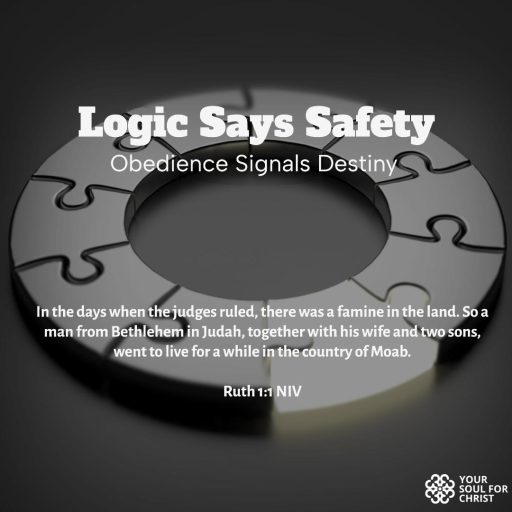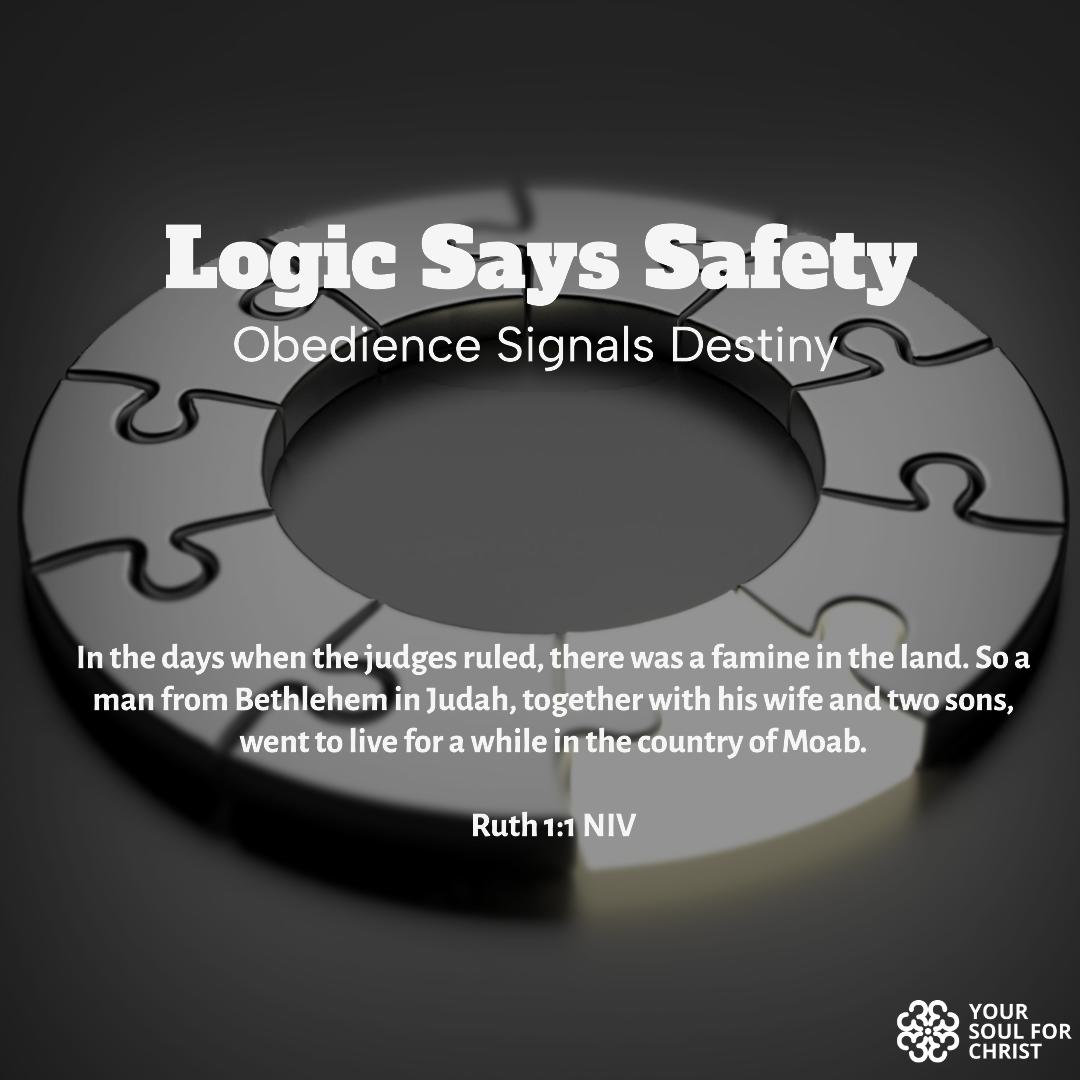In the days when the judges ruled, there was a famine in the land. So a man from Bethlehem in Judah, together with his wife and two sons, went to live for a while in the country of Moab.
Ruth 1:1 NIV
Often, the issue in life isn’t that we take action and don’t see the expected results. Rather, the deeper problem lies in taking action without God’s instruction. This can manifest in several ways: acting before hearing from God, moving ahead despite His silence, or failing to consult Him at all. In many cases, our decisions are driven by circumstantial reasoning. We assess our environment, calculate risks and outcomes, and act based on what seems most logical — yet logic does not replace divine guidance.
Sometimes, economic hardship influences these choices. When pressure mounts, it’s tempting to justify decisions based on perceived outcomes: If I do this, surely this will happen. But Scripture reminds us that human reasoning alone is not always reliable. Naomi’s story in Ruth 1 is a powerful example of this.
Due to a famine in Israel, Naomi and her family relocated to Moab. On the surface, this seemed like a reasonable decision — a way to escape scarcity and survive. In Moab, her sons even married, suggesting some level of stability. However, they were not thriving; there is no record of children or lasting fruit. Over time, tragedy struck: Naomi lost her husband and both sons, leaving her with only her daughters-in-law.
At first glance, it might seem like the real issue is the string of misfortunes. But when we look deeper, we’re led to reflect on a more important question: What decisions do we make outside of God’s instruction?
We find a stark contrast in Genesis 26 during the time of Isaac. Like Naomi, he faced famine. However, Isaac considered going to Egypt — a land with more resources — but God instructed him to stay. Despite the outward lack, God promised to bless him in that place. Isaac obeyed, and he prospered.
The difference wasn’t in the location — it was in the obedience. Your prosperity is rarely about geography. It’s about alignment with God’s will. When God says “go,” there’s blessing in the going. When He says “stay,” there’s blessing in the staying.
We must adopt a posture of daily inquiry. David consistently modelled this: “David inquired of the Lord” is a phrase in Scripture. Before making moves — even seemingly obvious ones — he sought God’s guidance.
Why is this important? Because no one knows you better than your Creator. God, the One who formed you, knows your purpose, your potential, and your path. It’s foolish to rely solely on your own understanding when the One who made you offers wisdom freely.
You might think you’ve weighed every variable and calculated the best outcome. But without divine insight, you risk stepping outside of God’s plan. Every time you act independently of God’s direction, you short-change yourself. Only God can reveal the best path for your life. Logic cannot reveal your path.
Living It Out
God wants to be involved in every detail — even the ones you consider minor. From career moves to relationships, financial decisions to everyday choices, He longs for you to ask: “Lord, what would You have me do?” Sometimes the answer will be “move.” Other times it will be “stay.” The real test isn’t in the instruction — it’s in your obedience. Prosperity isn’t found in the action itself but in aligning that action with God’s will.
Naomi’s story teaches us that logic, survival instincts, or emotional responses can never replace divine direction. In contrast, Isaac and David show us the power of thoughtful obedience — deliberate decisions rooted in God’s voice.
Let this be your takeaway: Don’t act simply because it seems right; act because God said so. Inquire of Him daily. Listen closely. Obey fully. And you’ll find that even in famine, you can flourish.

